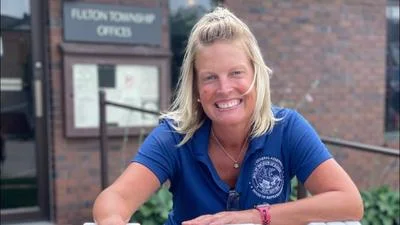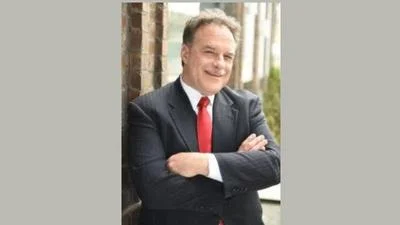Belvedere Trading founder William Carlson claims current CEO Yezdaan Baber (pictured) helped orchestrate his ouster and misrepresented financials behind a 2008 settlement. | Facebook / Belvedere Trading
Belvedere Trading founder William Carlson claims current CEO Yezdaan Baber (pictured) helped orchestrate his ouster and misrepresented financials behind a 2008 settlement. | Facebook / Belvedere Trading
William C. Carlson, founder and former co-owner of Belvedere Trading LLC, has released a forensic audit that he claims confirms he was defrauded of approximately $35 million in equity from the firm he founded in 2002.
Carlson left the firm in 2008 after accepting a $17.5 million settlement, but says he did so based on incomplete and misleading information. However, he has long claimed that his actual ownership stake and profit share were significantly underrepresented.
Carlson, who held approximately 43% of Belvedere’s equity through his entity Willis Capital as of 2008, alleges that junior partners at the firm—Thomas Hutchinson, Owen O’Neill and current CEO Yezdaan Baber—executed an internal coup that forced him out and redistributed ownership without his consent.
In March 2025, Carlson submitted a sworn affidavit and a previously concealed forensic audit to the Illinois Attorney General’s Office, urging prosecutors to take action. The audit, prepared in 2010 by Robert Cooper & Company CPAs, P.C. and uncovered by Carlson in October 2024, outlines what Carlson describes as a deliberate scheme to deprive him of tens of millions in profits and equity.
“There was no formal method of profit and loss allocations that were verbally agreed upon until the members of Belvedere miss led William into agreeing what his final economic allocation of earnings for the year 2007 should be,” Robert Cooper wrote. “Without reviewing how the numbers were being computed and allocated to each partner in accordance to the operating agreement, a reasonable person could in no way understand if the numbers were correct and would have to rely on what was being shown to them.”
Carlson stepped away from the firm temporarily in 2005 for health reasons. He later underwent a serious vascular leg surgery in 2006 after 13 years on the trading floor. During his absence, the firm’s operating agreement was revised.
Carlson alleges that before his return to a trading role for the firm in 2007, younger partners used the opportunity to dilute his ownership, conceal key financial information, reassign equity and make unauthorized payments—including undisclosed payouts to spouses for silence. He also claims a partnership with Baber was granted without his approval.
The audit indicates that in 2006 and 2007—two highly profitable years for the firm—Carlson should have received additional capital allocations based on his status as both a Trading and Equity Member under the firm’s operating agreement.
However, the financial statements given to him reported significantly lower figures.
“In a memo to William Carlson his allocated profit and loss for 2007 was totaled at $13,284,887,” Cooper’s report reads. “It is unclear and misleading as to how those allocations were made as they were not made in accordance with the membership agreement.”
Cooper’s report also alleges manipulation around equity restructuring.
"In a memo dated January 16, 2008 there is a paragraph that gives reference to new shares of contributed capital to the equity pool to help fund Belvedere's positions,” Cooper’s report reads. “However, based on the information supplied, there were no contributions of any capital to the firm during 2007. A contribution of capital would be an new infusion of cash or assets to capital to the firm which none was done in 2007."
Cooper’s analysis further states that had Carlson wished to retain equal equity with his partners, he would have been forced to “come up with an additional $8,000,000,” despite no formal requirement or justification.
The report also outlines questionable margin requirement justifications involving Goldman Sachs, Belvedere Trading’s clearing firm at the time.
“There was no reference to the clearing agreement with their clearing firm, Goldman Sachs or how that calculation was derived at when telling William that Goldman's margin requirement based on risk was closer to $70 million which typically requires the firm to immediately borrow funds to come up with to meet those requirements or there is an firm agreement with how that would be handled,” Cooper wrote. “It was unclear as how that would have been resolved.”
In an email accompanying the report, Cooper did not mince words about the nature of the alleged misconduct.
"So if you were to ask me this is more of a theft (criminal fraud) as well as a misrepresentation," Cooper wrote in the email.
Belvedere Trading is active on both domestic and international markets as a member of the Chicago Board Options Exchange (CBOE) and Chicago Mercantile Exchange (CME). It is currently valued between $3 billion and $5 billion and reportedly earns up to $500 million annually.
Carlson has alleged the CBOE and CME have turned a blind eye to the matter given Belvedere Trading’s position as a market maker.
Belvedere Trading noted its importance to the market in an April Facebook post.
“Belvedere has emerged as the lead market maker in CBOE Global Markets latest expansion in its S&P product suite,” the post reads. "The addition of S&P 500 Equal Weight Index options by CBOE is timely and we are excited for the opportunity to serve as the lead market maker.”
Carlson says he reported the alleged misconduct to the FBI on eight-to-ten separate occasions between 2008 and 2024 in addition to notifying U.S. Attorney Patrick Collins, yet no federal charges were filed.
Carlson’s prolonged legal battle to overturn the 2008 settlement involved multiple arbitrations and appeals, ultimately ending with the U.S. Supreme Court declining to hear the case in 2023.
In light of the forensic audit’s findings, he is once again calling for a criminal investigation into Belvedere Trading.
“It's not good,” Carlson previously told Chicago City Wire. “I mean, it’s really, really bad conduct and these are big dollars.”






 Alerts Sign-up
Alerts Sign-up